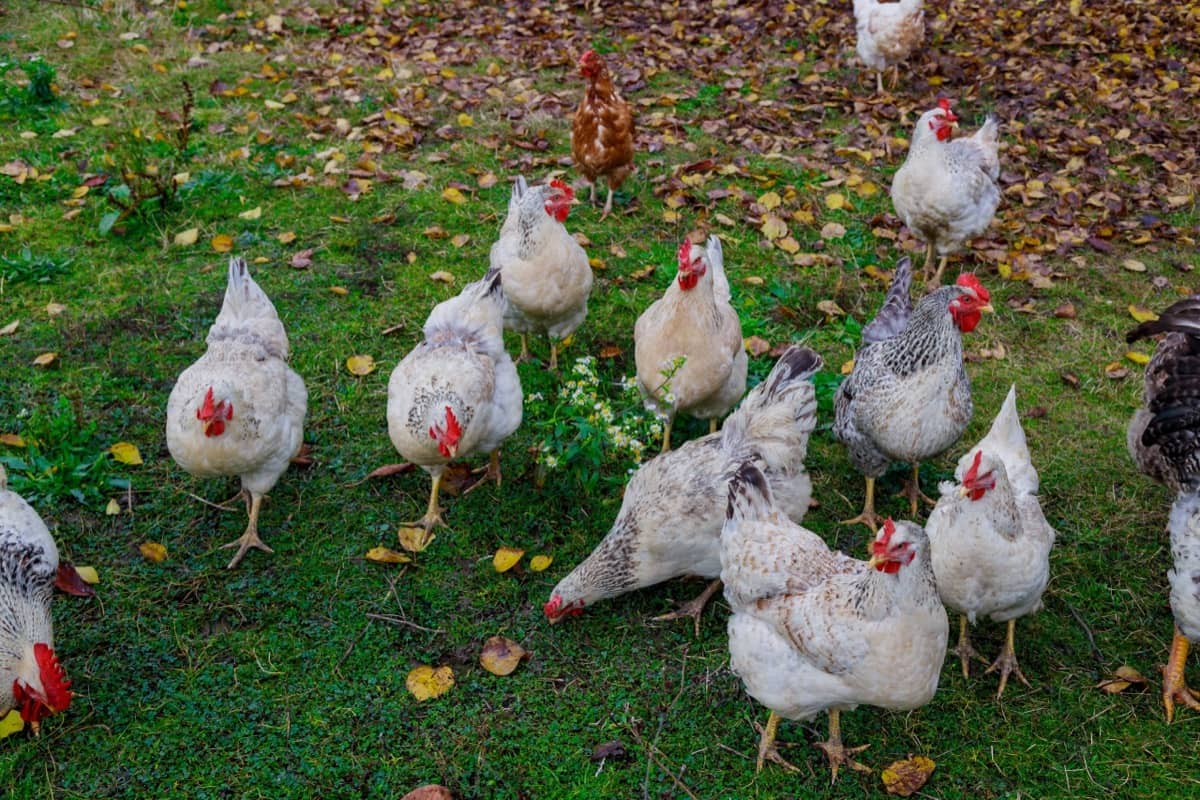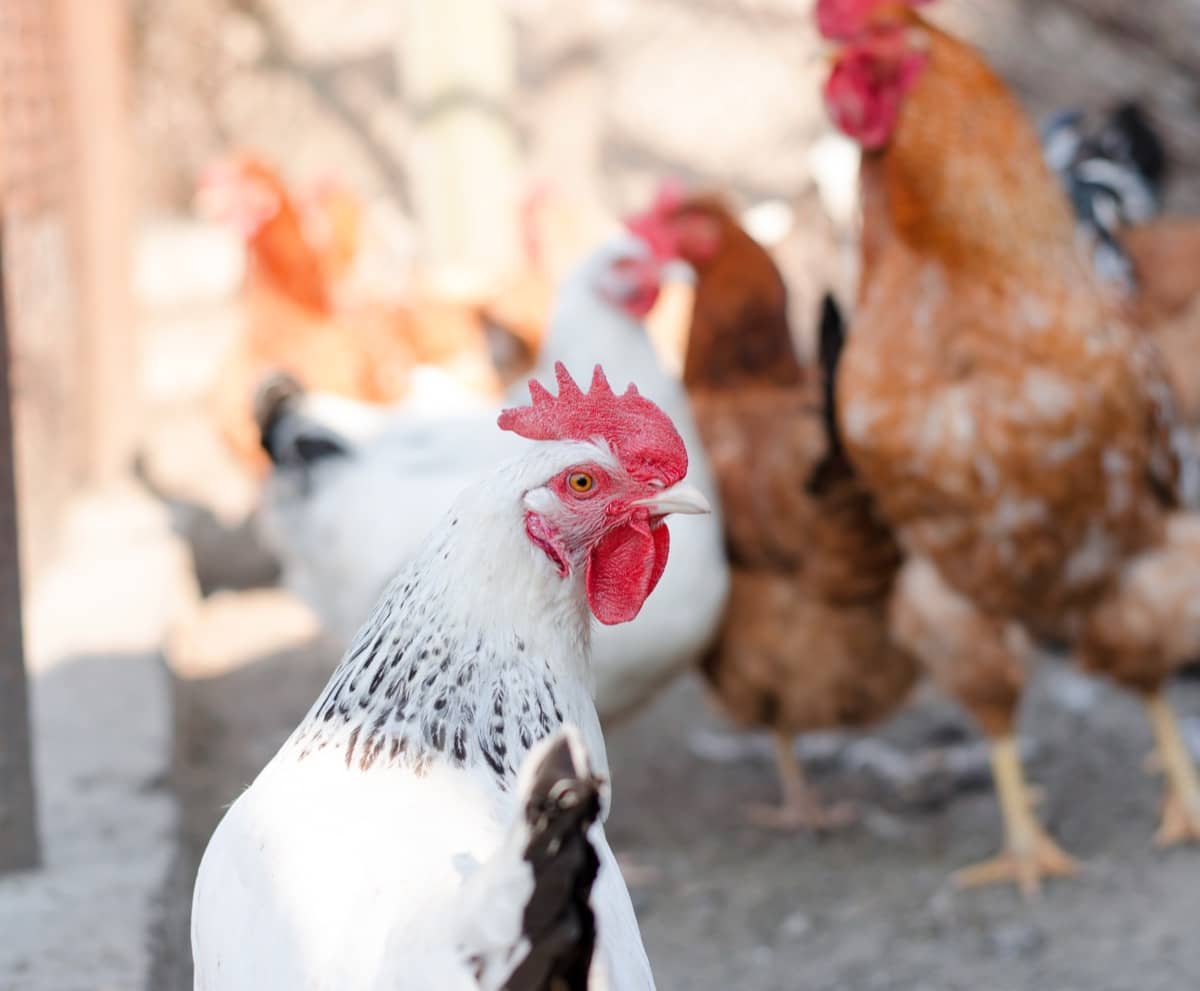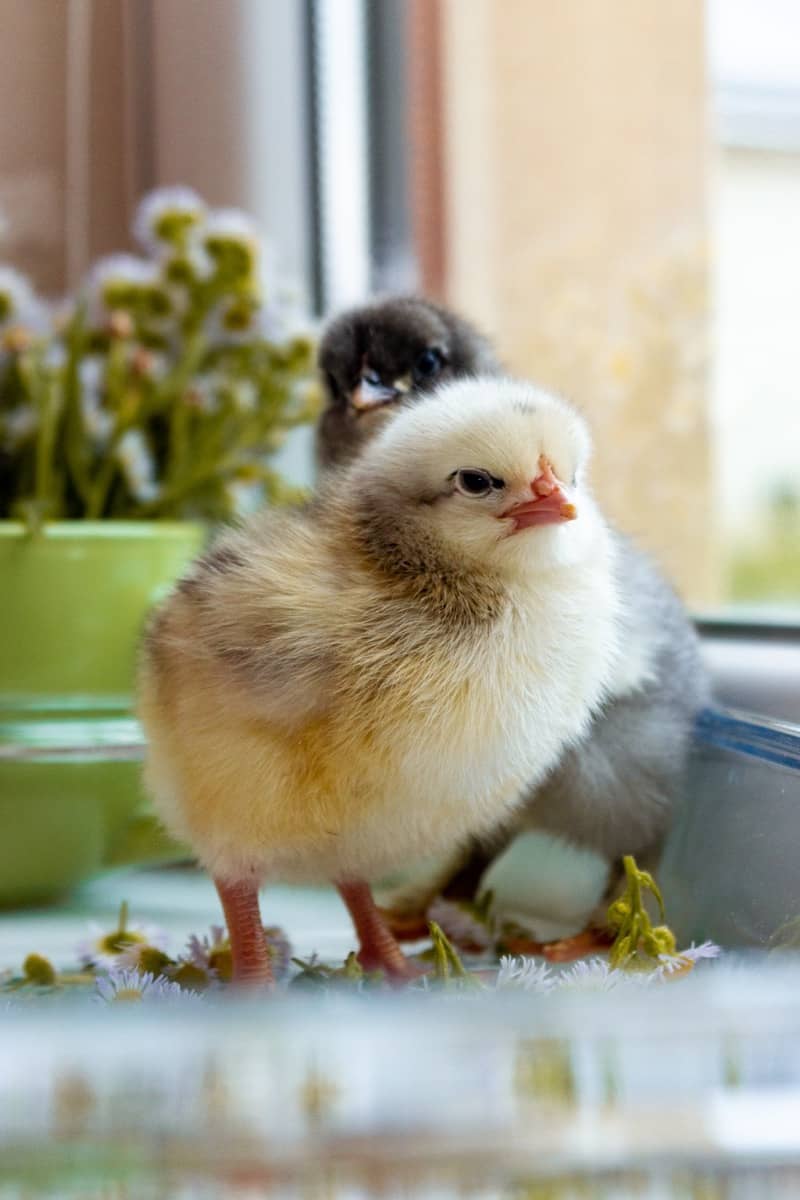The Delaware chicken is a popular breed known for its excellent egg-laying abilities. They are dual-purpose breeds, which means they can produce meat and eggs. The purpose of this document is to provide information about Delaware chicken care and egg-laying characteristics.

Background and History of Delaware Chicken
George Ellis of Delaware developed the Delaware chicken breed in the 1940s by crossing Barred Plymouth Rocks with New Hampshire Red chickens. They are distinguished from other breeds by their white feathers and black speckles. The 1950s and 1960s saw commercial poultry farms favoring other breeds that produced more eggs or grew larger for meat production.
Consequently, the Delaware became less popular and eventually endangered. There has been renewed interest in preserving this breed in recent years because of its unique look and dual-purpose capabilities. Delaware is still valued for its friendly nature, excellent egg-laying ability, and quality meat on small farms today.
| Breed Name | Delaware |
| Place of Origin | Indian River, Delaware, U.S.A. |
| Uses | Dual-purpose: Broiler and layer |
| Rooster (Male) Size | 4 Kg |
| Hen (Female) Size | 3 Kg |
| Color | White with speckled black barring on their plumage, wings, and tail |
| Lifespan | 5+ years |
| Climate Tolerance | Heat tolerant |
| Care Level | Low |
| Egg Production | About 200 a year (approx. four a week) |
| Egg Size | Large |
| Egg Color | Light brown |
Delaware Chicken Appearance
- With a deep and broad body, the Delaware is a medium-sized chicken.
- The first thing you think of when you look at them is robustness. Its body is an inverted triangle with a U-shaped indentation in the back when viewed from the side.
- In Delawares, there is a single comb with five points.
- Their combs, wattles, and earlobes are red, and their beaks are yellow or horn-colored.
- Last but not least, the legs of this hen are quite muscular, and her skin is yellow. Each foot will have four toes.
- Delawares have white plumage and wings, as well as whitetails. Black speckles cover these areas, and their feathering is relatively tight.
Behaviour/Temperament of Delaware Chicken
In general, Delaware chickens are known for their calm and docile natures. It is considered one of the friendliest chicken breeds, making it an excellent choice for backyard flocks and pets. The chickens are gentle and easy to handle, making them a good choice for children and beginners. Delaware chickens are moderately active but not excessively so. Seeing them foraging and exploring their surroundings is common, showing a curious nature.
In case you missed it: Best Chickens for Eggs and Meat: A Guide to Dual Purpose Chickens

In addition to being quite intelligent, they can learn quickly to recognize their owners. In addition, they are generally not aggressive toward humans or other animals. The Delaware chicken is also known for its social behavior. Chickens thrive in flocks and enjoy being with other chickens. They establish a pecking order within which dominant individuals are in charge, and the others follow.
Egg Production and Broodiness in Delaware Chicken
- Chickens of the Delaware breed are well known for their ability to lay eggs. The Delaware chicken is known for its reliable egg-laying behavior. Typically, they start laying eggs around 5-6 months of age and continue to lay eggs for the remainder of the year.
- These hens can lay an average of 280-320 eggs annually, which translates to around 5-6 eggs per week. As a result, they are quite productive and very popular among backyard chicken keepers.
- Eggs laid by Delaware hens are usually brown or tinted in color. It is ideal for those who enjoy baking or cooking with fresh ingredients because the eggs tend to be medium to large.
- One thing to note about Delawares is that they are rarely broody. A hen’s broodiness refers to her tendency to sit on her eggs until they hatch into baby chickens. Breeds such as Delaware tend not to exhibit broodiness as frequently as other breeds.
Delaware Chicken Health Issues
- Delaware Chickens are known for their strength and health, first and foremost. It is very rare to find one with any serious health issues.
- Caring for our feathered friends means paying attention to lice, mites, and worms. Lice and mites should be checked on birds regularly. Check around the vent and under their wings carefully.
- If you find any parasites, you can treat them with a bag of suitable dust or spray. Some folks treat both regularly, whereas others only treat them as needed. No right or wrong way will depend on what is best for you and your flock.
- You should also check for worms regularly. You should send your veterinarian a fecal float test if you cannot do it yourself.
Delaware Chicken Feeding
- Baby chicken Delawares should be fed a 20-24% protein crumble starter feed.
- If you choose the higher 24% protein, you can cut this down to 20% after the first six or eight weeks. They will need to have food available 24 hours a day.
- Baby Chickens will also need clean and fresh water.
- You can add electrolytes and vitamin powder to their water during the first few days to boost them.
- They can continue on 20% protein until they reach around sixteen weeks old. You can gradually move them to a 16% layer pellet or crumble.
- In addition, feed them with oyster shells in a separate container; this helps to make strong shells. Insoluble grit should also be available separately, especially if they cannot access the outside.
Coop Setup and Run for Delaware Chicken
- Because they are larger, you should give them at least 8 square feet of coop space.
- Other breeds do not usually pick on them as they are fairly assertive. However, the more space they have, the happier they will be.
- As for perches, they should each get 8-10 inches. This will give them enough room to be comfortable in both summer and winter temperatures.
- Regular-sized nesting boxes of 12×12 inches would be a perfect fit for these ladies.
- This gives them enough space to be comfortable but does not allow double-bunking, which can damage eggs.
In case you missed it: The Golden Comet Chicken: Everything You Need to Know

Conclusion
In conclusion, Delaware chickens are a sought-after breed due to their dual-purpose capabilities as both excellent egg layers and meat birds. Whether you are a beginner or an experienced chicken keeper, Delaware chickens are a great choice for those looking to enjoy the benefits of fresh eggs and a delightful addition to any flock.
Note: The images presented in this post are intended solely for representation purposes. The images are meant to serve as visual aids and should not be relied upon as accurate representations of their real-life counterparts.
- Feed Your Flock for Less: Top 10 Tips to Save on Chicken Feed
- Ultimate Guide to Ossabaw Island Hog: Breeding, Raising, Diet, and Care
- Hatching Answers: The Top 10 Reasons Your Chickens Aren’t Laying Eggs
- Eggs and Economics: Breaking Down the Cost of Raising Backyard Chickens
- Defend Your Greens: Proven Methods to Keep Iguanas Out of Your Garden
- Ultimate Guide to Cinnamon Queen Chicken: A Comprehensive Guide for Beginners
- Ultimate Guide to California Tan Chicken: Breeding, Raising, Diet, Egg-Production and Care
- Ultimate Guide to Marsh Daisy Chicken: Breeding, Raising, Diet, and Care
- 10 Types of Chicken Farming Businesses You Can Start for Profits